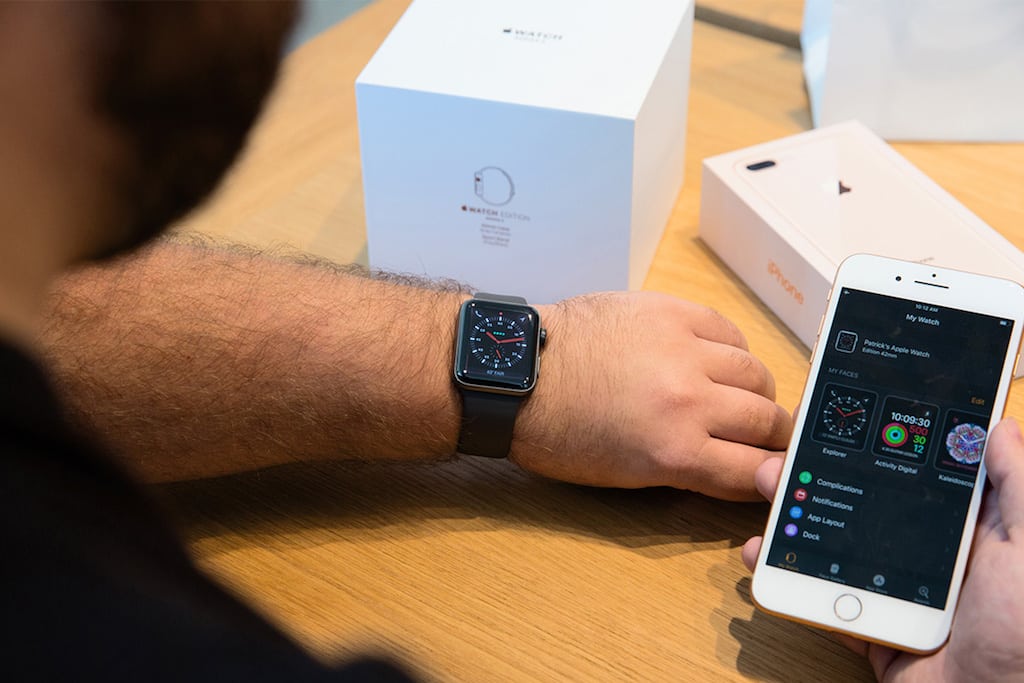Skift Take
Voice will change the current travel marketing funnel much faster than we think. Savvy marketers and technologists should begin thinking about ways to make an impact on this burgeoning channel.
Colin Nagy, head of strategy at Fred & Farid, a global advertising agency, writes this opinion column for Skift on hospitality, innovation, and business travel. “On Experience” dissects customer-centric experiences and innovation across hospitality, aviation, and beyond. You can read all of his columns here.
Images are essential to travel marketing. Whether it is an old-school print advertisement for a cruise company in Departures Magazine or an influencer-centric Instagram campaign for a new boutique hotel, a lot of time and effort is spent to seduce the eye with beautiful visuals.
This is based on how we consume content: using our desktop or laptop throughout the day, or drinking in frantic spurts from our mobile feeds. Instead of digging through big blocks of text, we are drawn to things that can convey a story or a feeling quickly. Great visuals are seductive and make their way to our heart quickly.
Luxury brands know this and have re-aligned their strategies to up the volume of content output, making sure exceptional art direction shines through in fragmented (and often low-fi looking) mediums like social media.
But for travel marketers and those in charge of building brands and setting a visual tone, the rise of voice interfaces needs to be considered and planned for soon. The shift will happen quicker than we realize, and may represent as large of a shift as the rise of bottom-up social media.
Aaron Shapiro, the founder of digital agency Huge, wrote a piece in Adweek claiming that the post-phone world is happening faster than we think. For all of the accolades earned by the iPhone X, he argues that the connected Apple Watch represents a bigger sea change:
“The Apple Watch Series 3 is a big deal because it comes with LTE cellular connectivity,” Shapiro wrote. “This means that—when coupled with Airpods — it will become the first truly credible post-phone internet device.”
Apple Watch Series 3 “makes all the things we currently use our phones for—playing music, text messaging, making phone calls, getting directions, or ending a debate with a Wikipedia factoid, possible without your phone.”
When you think about it, we spend a ton of our time interrupting our field of vision with a device in front of our faces. Right now, voice commands through Google Assistant, Siri or Alexa are in their early phase of development. It’s useful to ask for a new NPR morning briefing while you’re tying your shoes or for remedial information based on Web searches. But as the technology gets more advanced, voice will insert itself into the modern marketing funnel in a meaningful way.
How will this look? In the research phase, perhaps it is being read an article from a top travel publication about the destination you have in mind to visit in four months. Perhaps a device is narrating the work of the novelist Graham Greene when you’re thinking about a trip to Hanoi. Or posing a query about the most in-demand boutiques from Tablet Hotels.
When it comes to purchasing, maybe it will be as simple as saying: Send me the best flights on Oneworld based on these dates. It is clear that the final meter won’t be conducted via voice, but the channel will have an important role in the ecosystem.
As for the much-touted hotel in-room voice experiments? I think the privacy issues are too much for this trend to see meaningful scale. It is one thing to have an assistant device in your home when you decide you want to buy it. It is another to have a device you didn’t ask for in the middle of a hotel room. After all, you can use a personal device.
Voice is certainly already on the to-do list of inspired marketers and chief marketing officers. This is just the beginning and this friction-free interface can have a seismic impact on how travel is positioned and bought if it receives the right amount of creative thinking from agencies, brands, and technologists.
The Daily Newsletter
Our daily coverage of the global travel industry. Written by editors and analysts from across Skift’s brands.
Have a confidential tip for Skift? Get in touch
Tags: marketing, mobile, On Experience, voice search
Photo credit: A man pairs his Apple Watch Series 3 at an Apple Store in New York City. Wearables and smart speakers are driving forward a revolution in voice search technology. Apple

